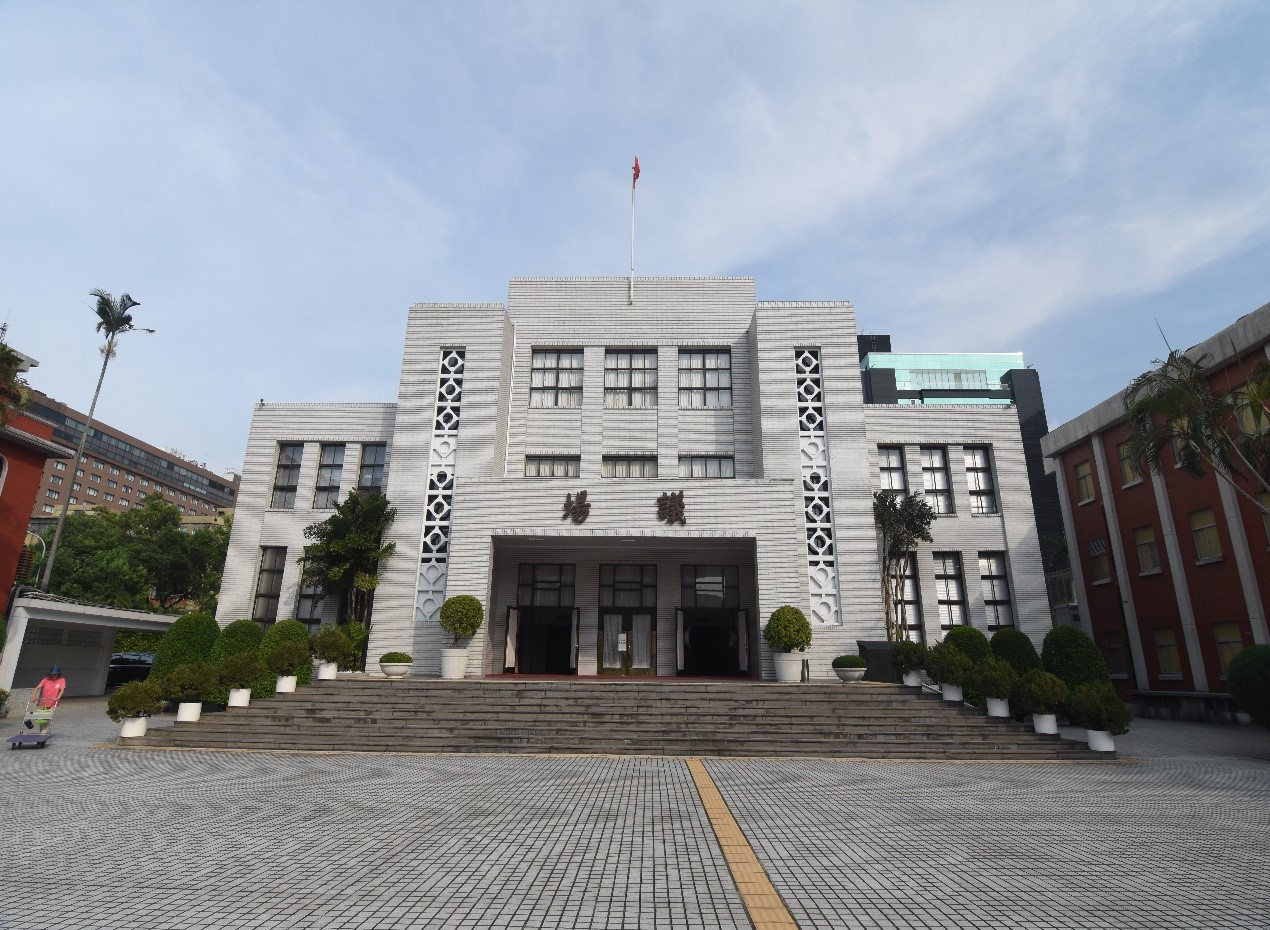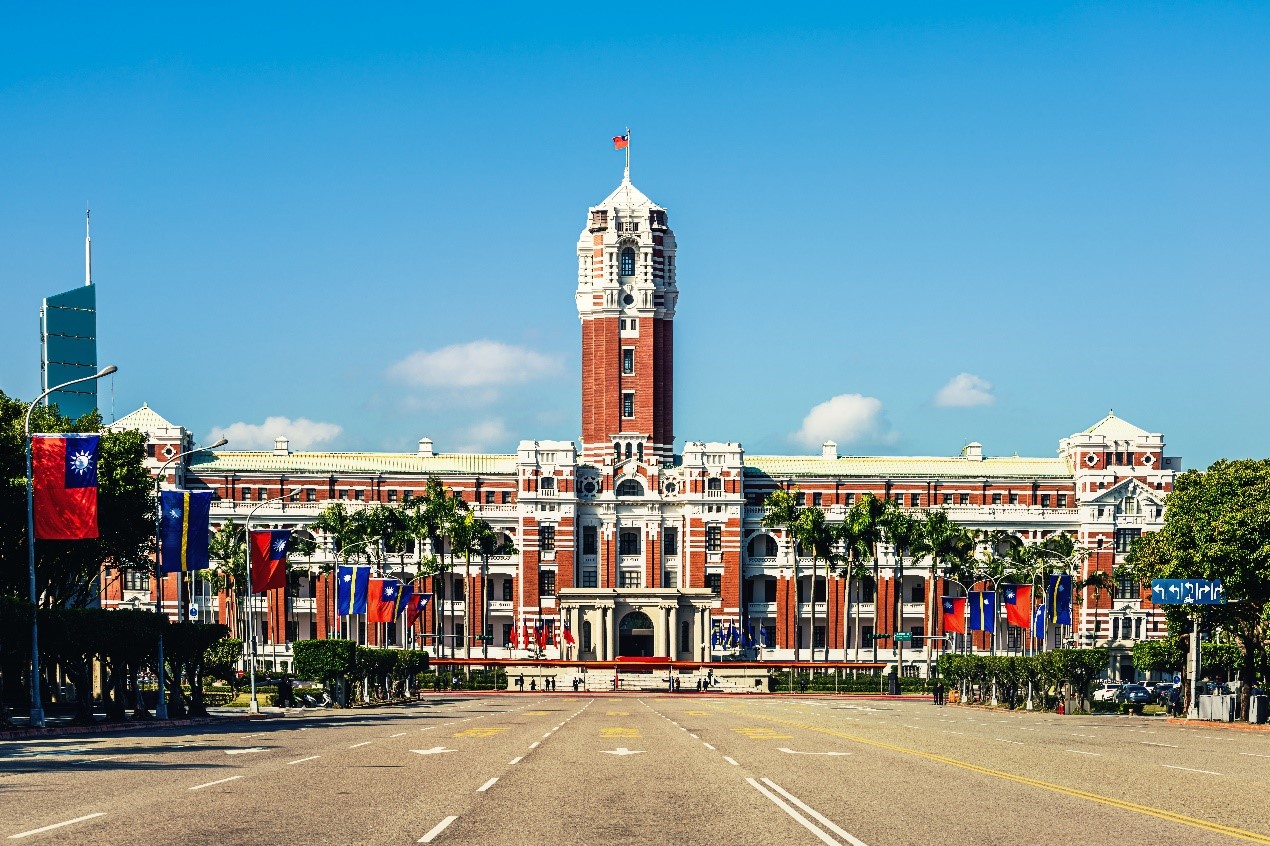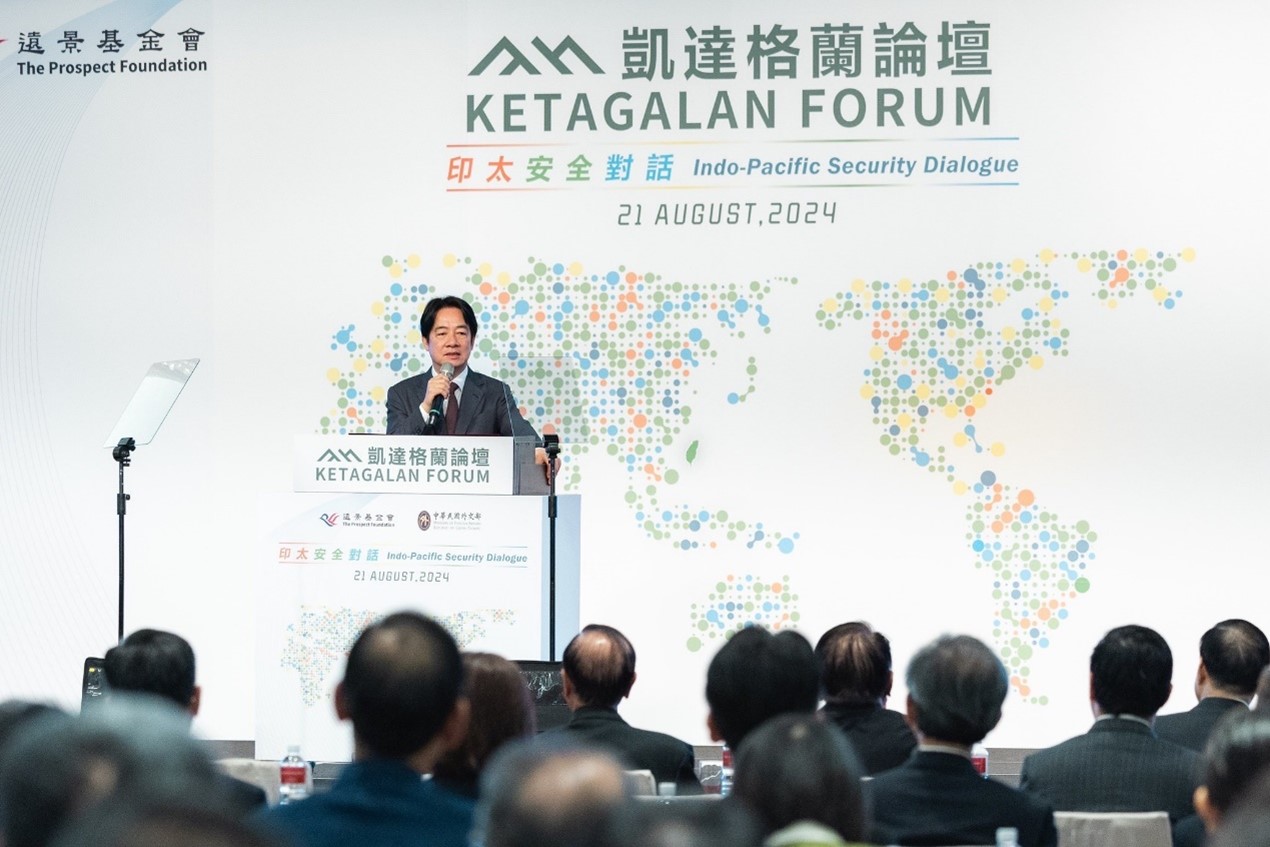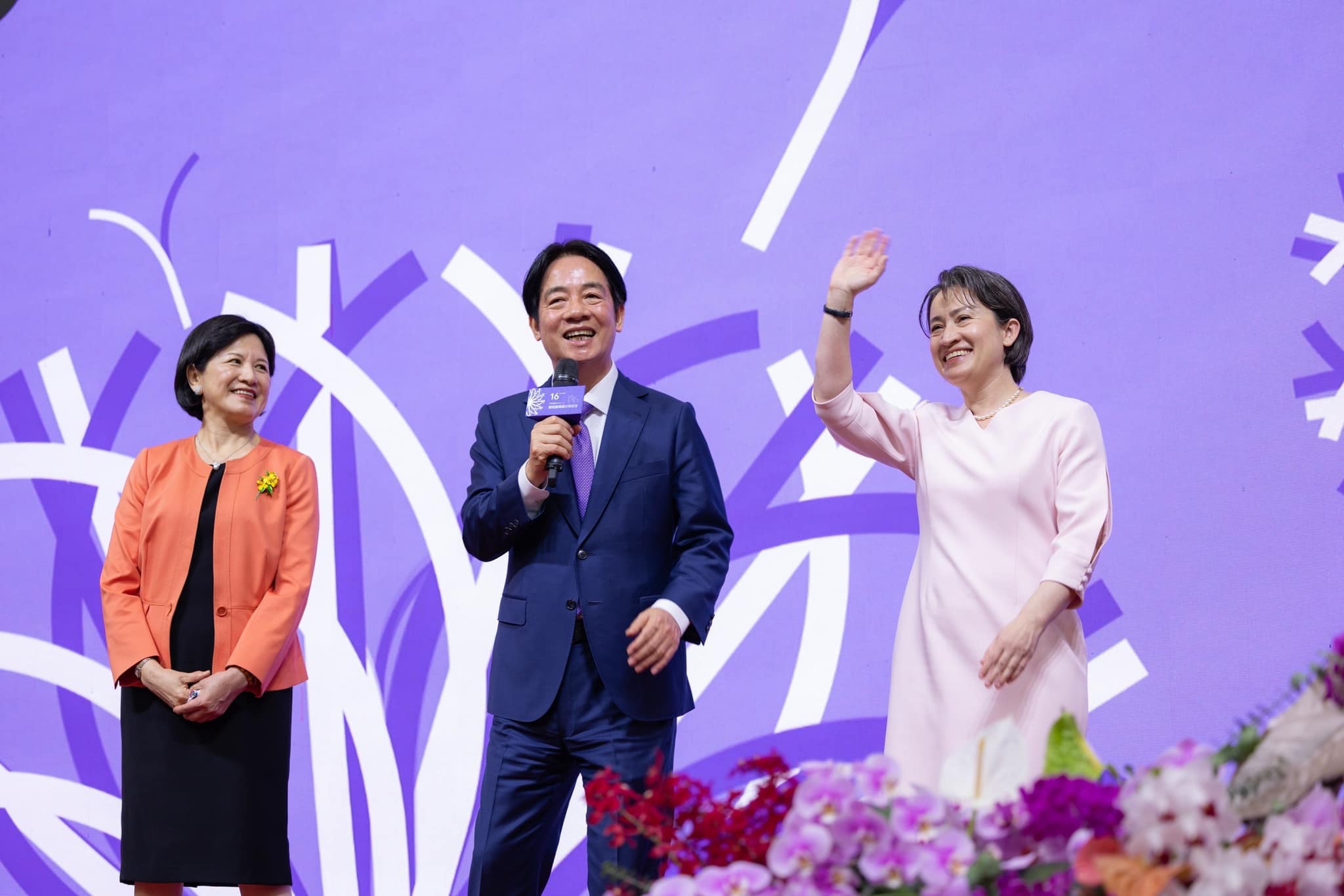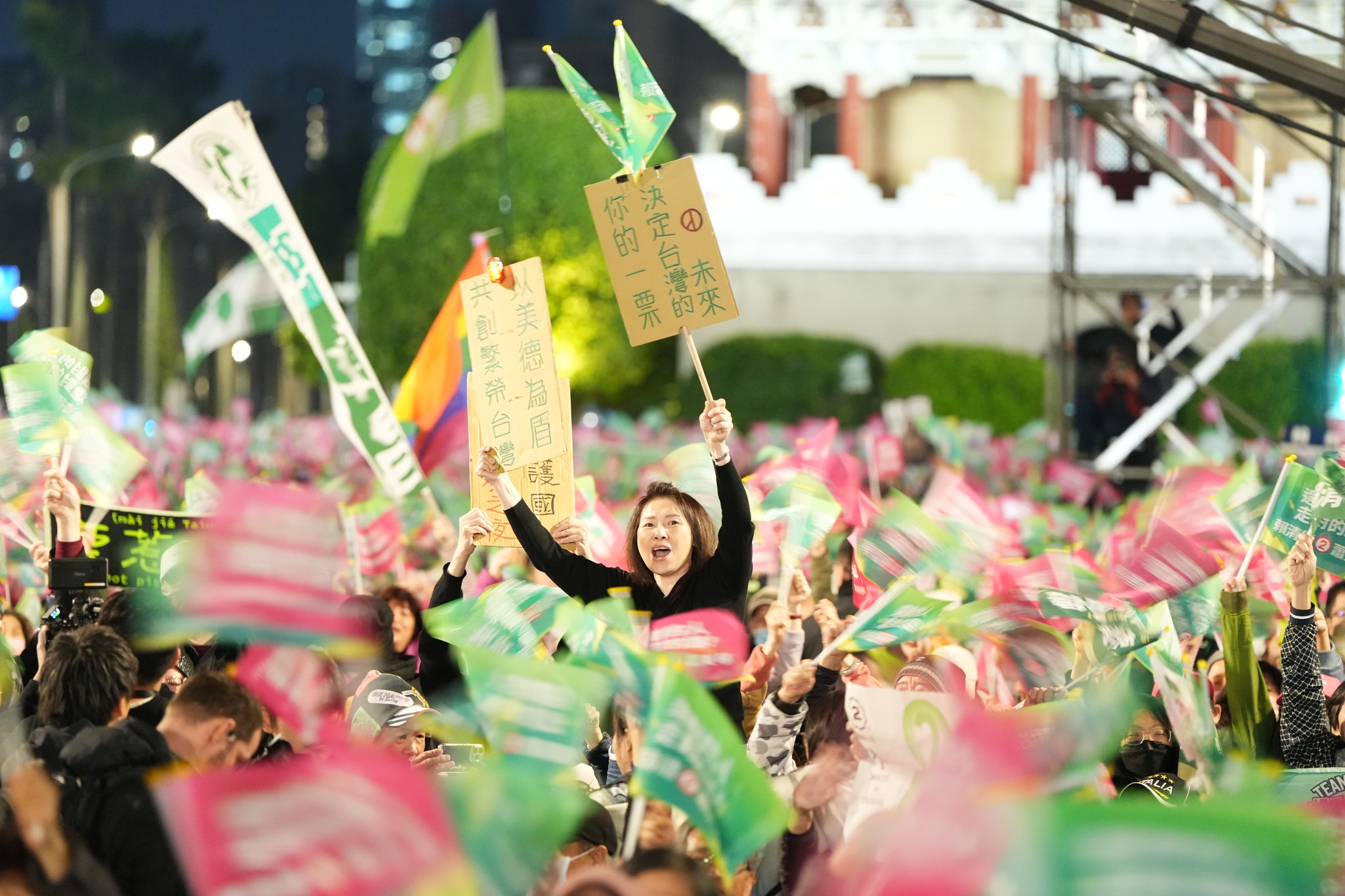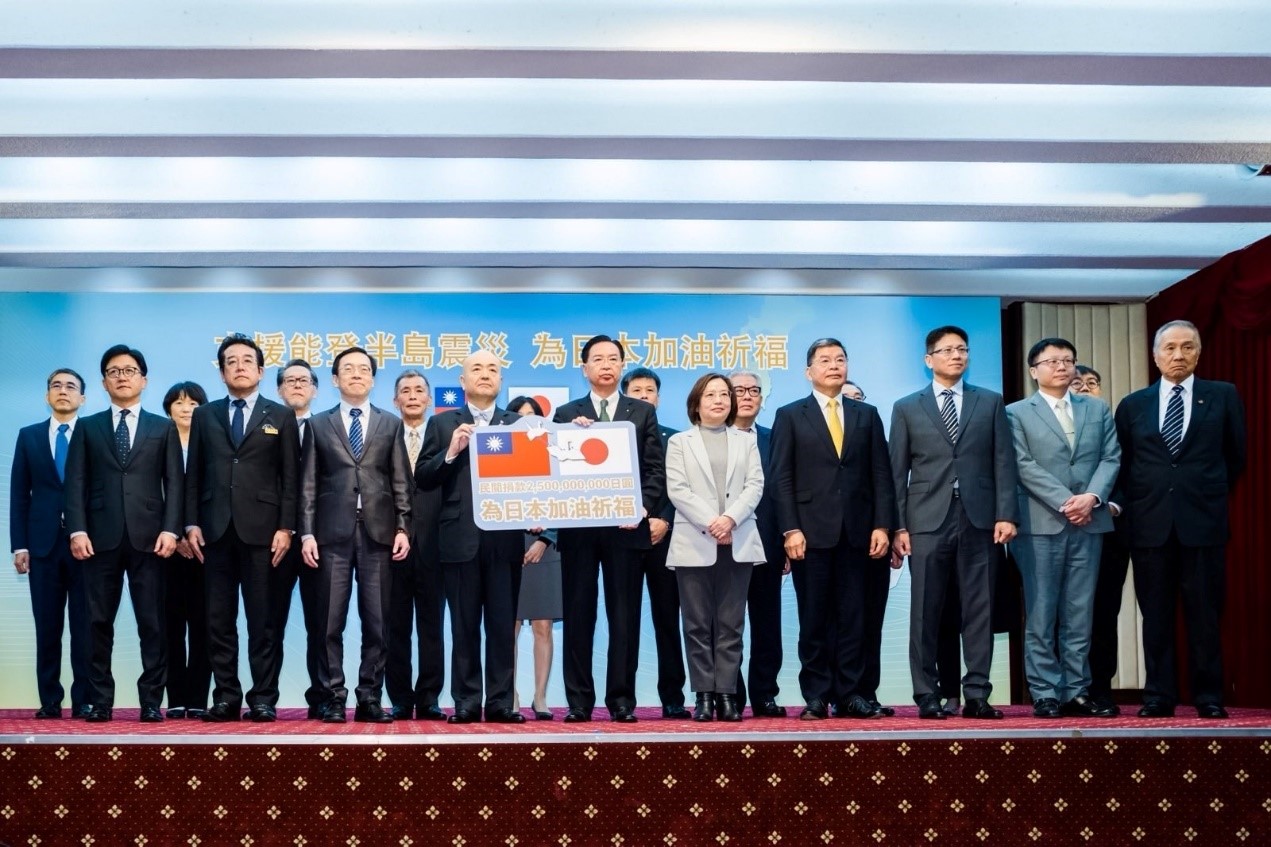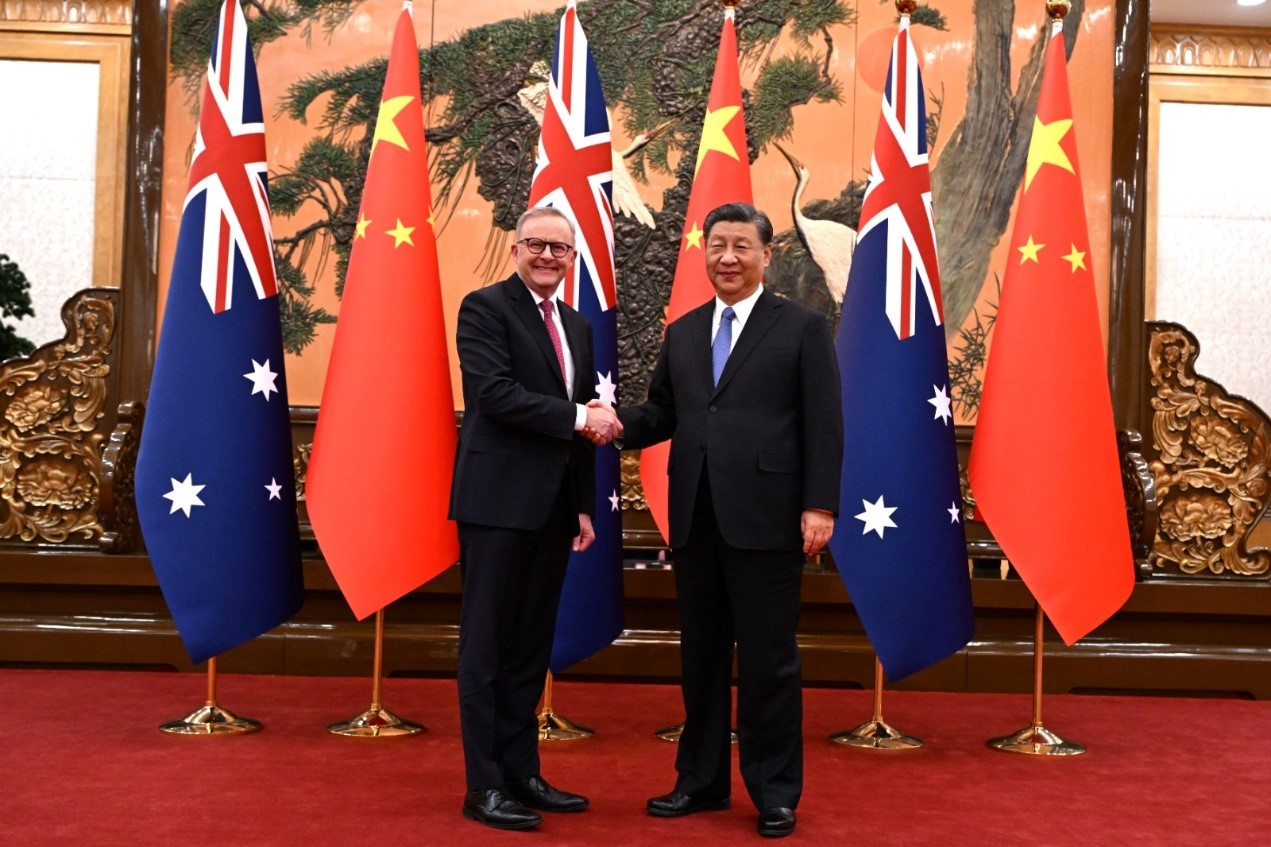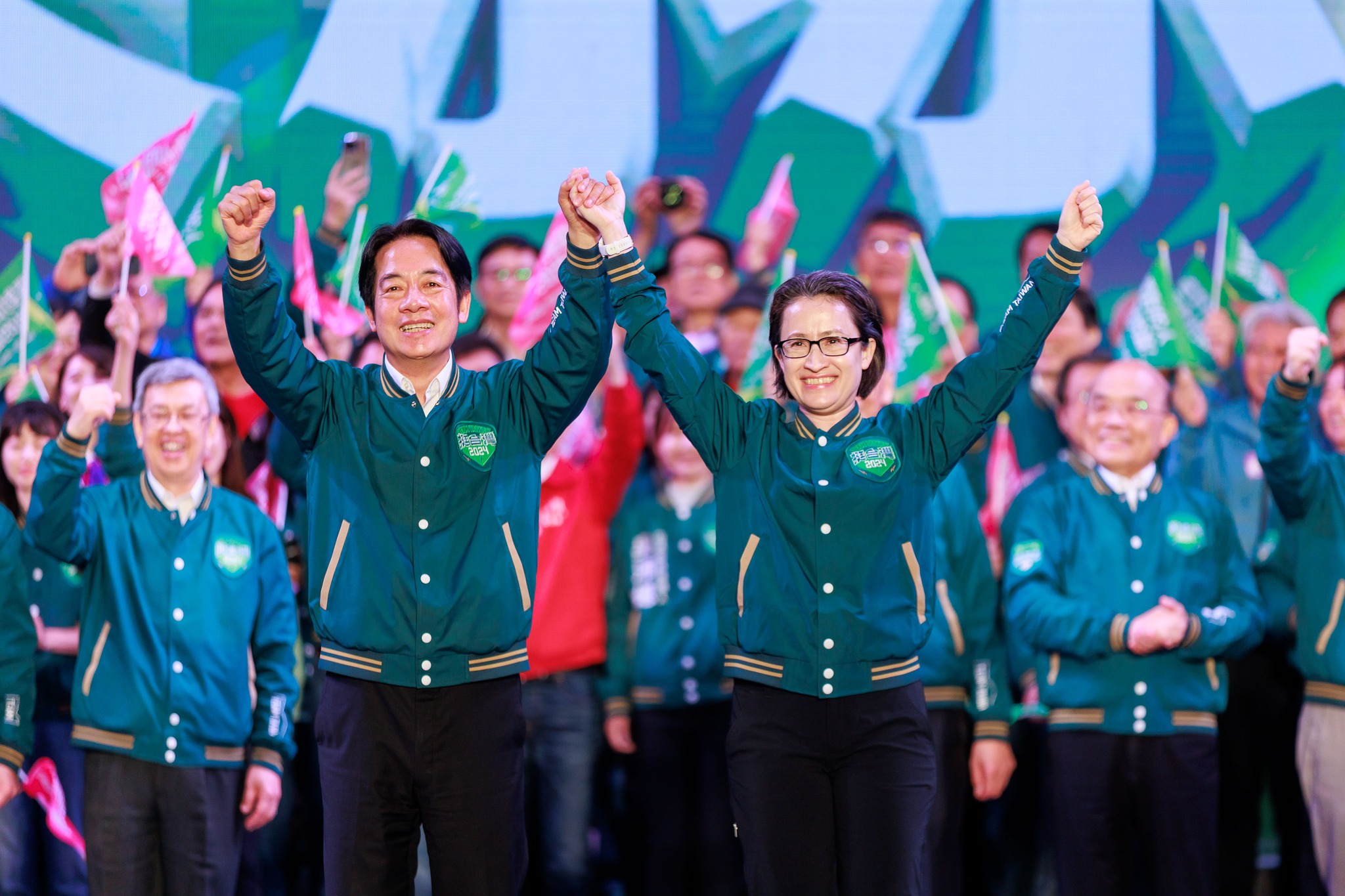Overall, fears of debilitating gridlock are exaggerated. President Lai will be able to install a government, and that administration will be able to perform normal government functions. Lai will be able to implement some of his agenda through normal executive actions, especially in foreign affairs, cross straits policy, and national security. Picture source: 林高志, October 3, 2017, Wikipedia, https://commons.wikimedia.org/w/index.php?curid=63384296.
Prospects & Perspectives No. 5
The 2024 Elections and the Politics of Divided Government
By Nathan F. Batto
There was widespread speculation that the DPP would lose its majority in the legislature and that the TPP would end up holding the balance of power, and that is exactly how it turned out. Each of the three parties had something to celebrate but also something to be dismayed by. The DPP held the presidency, its most important goal. However, it won far fewer presidential votes than four years ago, and it (including allied independents and small parties) lost a total of 14 seats in the Legislative Yuan. The KMT emerged as the largest party in the legislature. However, Hou did not win the presidency or even come very close. When the results came in, there was not much jubilation on DPP and KMT faces.
The happiest reactions were found on the TPP stage. While Ko came in third in a three-way race, it was a strong third. His support was not eaten away by widespread strategic voting. Moreover, the vast majority of people who voted for Ko also voted for the TPP party list (22.1%), earning it not only eight pivotal legislative seats but also doubling the TPP’s annual public subsidy. So, how will President Lai navigate this new political environment in no party holds a majority in the legislature?
Who will control the executive branch?
In Taiwan’s semi-presidential system, the premier, not the president, is the head of the executive branch. The premier, not the president, appoints Cabinet ministers and chairs cabinet meetings. Could the opposition in the legislature use its majority to control the premier?
Since 1997, the president has had the power to directly appoint the premier, with no need for a confirmation vote from the legislature. The legislature has the power to remove the premier through a vote of no confidence. If this happens, the president can either appoint a new premier or dissolve the legislature and call for new legislative elections. This system empowers the president. Instead of automatically having a vote on the new premier, the legislature has to organize a coalition to call for a no confidence vote. If the no confidence vote succeeds, the president might appoint someone just as distasteful to the legislature. Worse, the president might dissolve the legislature and force legislators to face the expense, effort, and peril of winning a new term. In the new legislature, the TPP would also have to worry about losing its pivotal position and almost all of its political clout if either the KMT or DPP won an outright majority.
During Taiwan’s first experience with divided government from 2000 to 2008, President Chen Shui-bian was always able to appoint premiers of his own choosing. Even during his second term, when Chen’s approval rating was dismal and there were massive street protests against him, the legislature never tried to use the no confidence power to gain control of the executive branch. More generally, Taiwan’s system of semi-presidentialism fits into the family of what Carey and Shugart call “president parliamentary,” and in these systems the president almost always dominates the executive branch.
The upshot is that President Lai will almost certainly be able to appoint DPP premiers, who will, in turn, appoint DPP Cabinet ministers. The executive branch will make decisions in line with DPP values and priorities. Since most decisions are made inside the executive branch, this is no small matter.
Can the legislature block Lai’s agenda?
Over the past eight years, the KMT has tried to project an image as an energetic, vigilant, and effective opposition party. It will probably continue on this path, blocking Lai’s agenda as much as possible in an effort to make him a weak, feckless, one-term president. The TPP’s incentives are not as clear. They have positioned themselves as opponents to what the opposition has called the DPP’s “ineffective” and “corrupt” rule, so their initial instincts will be to oppose the DPP’s agenda. However, they do not want to become the KMT’s junior partner. After all, in their discourse, both major parties are “corrupt” and should be replaced. They may look for individual issues to cooperate with the DPP in order to distinguish themselves from the KMT.
The most important item on the legislative agenda is the annual budget, and the rules usually favor the executive branch. The executive branch writes the budget, and the legislature only has the power to cut spending for individual items. It cannot increase funding or move money from one item to another. If the legislature fails to pass the budget, the previous year’s budget automatically goes into effect. Since existing programs already have constituencies that will be unhappy if their budget is cut, it is usually politically difficult to reduce spending very much. More commonly, the opposition party will cut the budget by a negligible amount so that they can claim to their constituents that they are fulfilling their duty of government oversight. Existing programs are usually safe.
New spending is a different story. New initiatives are not protected by existing constituencies or the previous year’s budget. It is much easier for the legislature to cut them dramatically or even entirely. It will therefore be very difficult for Lai to push through a major new program like President Tsai Ing-wen’s Forward-Looking Infrastructure plan. Arm sales, which are usually funded through special budgets, may be the exception since in the current environment no party wants to be labeled as soft on national security.
The budget is not the legislature’s only lever of power. Most major domestic initiatives require some sort of legislative action. It will be quite easy for the opposition parties in the legislature to block government bills. Bills can be killed at many different stages in the legislative process, including bill introduction, the procedural committee, committee hearings, inter-party negotiations, and on the chamber floor. It is much easier to block legislation than to pass legislation, but if the KMT and TPP can agree on a bill, they will have enough votes to pass it. Since the president’s veto is weak — the legislature can override it with an absolute majority — the legislature can force the executive to play by its rules. We will probably see a few examples of this, though there is not enough time on the legislative calendar to do it very often. In general, Lai will have a difficult time pursuing his domestic agenda on anything that needs legislative action.
The president has a much freer hand when it comes to foreign affairs and cross-Strait policy. The legislature does not have much power in these areas. The budgets do not change much from year to year. Diplomacy usually involves public statements, memorandums of understanding, meetings between officials, and other acts that do not require the legislature to do anything. Lai has promised to continue President Tsai’s foreign and cross-Strait policy, and the divided government should not prevent him from doing so.
Overall, fears of debilitating gridlock are exaggerated. President Lai will be able to install a government, and that administration will be able to perform normal government functions. There will not be an American-style government shutdown. Lai will probably be frustrated if he tries to make major domestic policy changes, but he will be able to implement some of his agenda through normal executive actions, especially in foreign affairs, cross straits policy, and national security.
(Nathan Batto is Associate Research Fellow at the Institute of Political Science, Academia Sinica and the Election Study Center, National Chengchi University.)


